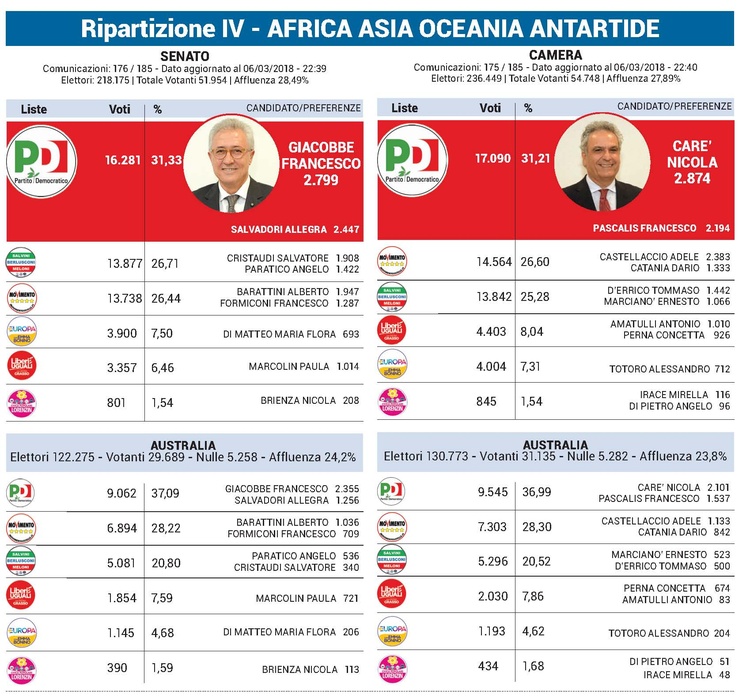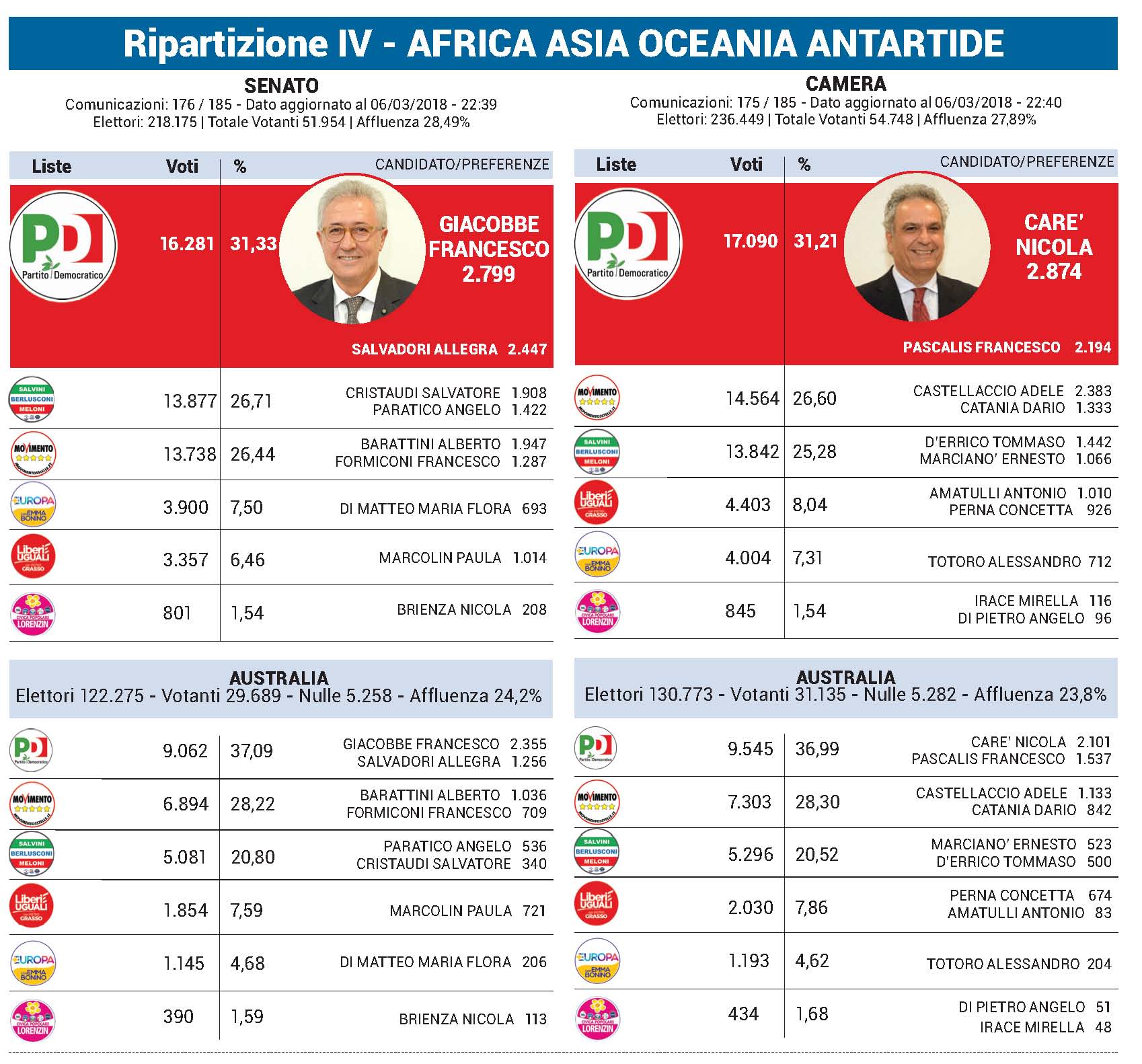These were the words of Francesco Giacobbe in light of the results of Italy’s general election, which saw him re-elected in the Italian Senate for a second term.
The Democratic Party (PD) won 16,281 votes in the Senate, that is over 2,000 more than in the 2013 election.
These numbers clash with the senator’s individual performance: he received 2,799 votes, which is over 4,000 less than in 2013.
Trailing closely behind was Allegra Salvadori, the democratic candidate representing the United Arab Emirates, who received the support of more than 2,400 voters.
The figures seem rather to confirm the opinion of the candidate for Free and Equal (LeU), Paula Marcolin.
“It seems to me that people have voted explicitly for the parties, rather than the candidates,” she said, disappointed with her party’s result in Italy but hopeful for a bright future abroad.
“In our electorate, LeU had more than 8 per cent of votes, even though we got moving much later than the PD. I’m happy with the result, which lays the foundations for the next project.”
The centre-right also did better in the Senate this election, receiving almost 4,000 more votes than in 2013 and coming in second.
But the biggest development was that of the Five Star Movement (M5S), which doubled in votes, and its growth was driven mainly by voters residing in Australia.
Votes for the movement tripled from 2,600 in 2013, making it the second most voted party in Australia.
“We should have organised ourselves earlier and been more prepared,” M5S candidate for the Chamber of Deputies, Dario Catania, admitted.
“But the incredible result we achieved is the product of a collective commitment which doesn’t end with the election. We will continue and contribute to the creation of a new community.”
The movement placed second across the entire electorate in the race for the Chamber of Deputies, receiving more than 14,500 votes, around 3,000 less than the PD.
Adele Castellaccio, the movement’s candidate for Morocco, received more votes (2,383) than the democratic candidate, Francesco Pascalis (2,194).
Both were beaten by the PD’s Nicola Caré, who came home strong with 2,874 personal votes.
“I’m very satisfied with the result,” Mr Caré said.
“But it was much more difficult than I expected.”
Like Francesco Pascalis, he then praised his fellow party members, which combined received a total of more than 17,000 votes compared to 15,862 in 2013.
Though it’s difficult to tell just how many people voted in this election, it seems that voter turnout has increased since 2013.
More than 55,000 votes have already been counted in the Chamber of Deputies, an increase of around 7,000 from the previous election.












